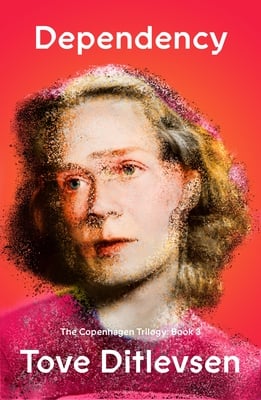APS TOGETHER
Dependency by Tove Ditlevsen

Hosted by Dorthe Nors
Began on February 3, 2022
Share this book club
Tove Ditlevsen (1917-1976) is one of the most loved and yet also literarily scorned writers in Danish literary history. It isn’t until recent years that her brilliance has finally been acknowledged, and her memoirs, The Copenhagen Trilogy, containing the novels Childhood, Youth and Dependency, has—over forty years after her death—given her an international breakthrough. At last! As a Dane I’m honored that I get to read Dependency with APS Together readers, and as a writer I’m just thrilled to dive back into the amazing musicality of Tove’s poetic, humorous, and brutally honest writing.
(You might look at the first two volumes of the trilogy on your own before we embark on our Dependency—journey, but feel free to tag along either way.)
In Dependency we meet the twenty-year-old Tove who has just married a much older editor and writer. He is the gatekeeper to the Danish literary community, and Tove, coming from a poor working-class background, wants to be a writer and marrying him is a stepping-stone. She soon drifts into the arms of other men, lovers as well as psychiatric doctors. She divorces, remarries, divorces again and finally she finds a man/physician who might lack the ability to give her the loving connection that her entire life is a search for, but he gives her a substitute: the opioid Demerol.
The Danish title for the book is Gift. In Danish the word gift means both “married” and “poison.” It’s my favorite title for a book—and it is, on top of that, one of the best books ever written.

Dorthe Nors
is the author of the story collections Wild Swims and Karate Chop; four novels, including Mirror, Shoulder, Signal, a finalist for the Man Booker International Prize; and two novellas, collected in So Much for That Winter. She lives in Denmark.

Daily Reading
Day 1
Part I, Chapters 1-2
February 18, 2022 by Dorthe Nors
“I am always inside it, like in a picture.” A good writer knows how to open well. The first sentence in “Dependency” is superb. Tove places herself in marriage as a doll in a doll’s house.
Day 2
Part I, Chapters 3-4
February 19, 2022 by Dorthe Nors
Men are moving Tove around like a prop. Though apathetic she finds power in the drama and in the ability to write revengeful one-liners: “His eyes are dull as raisins.” So blunt, raw, funny, and melancholically detached.
Day 3
Part I, Chapters 5-6
February 20, 2022 by Dorthe Nors
Being from poor (poor!) working class, Tove strives to social climb. She places herself in marriage, motherhood, love like a child playing a game. And like a child, she ruins the game when bored.
Day 4
Part I, Chapters 7-9
February 21, 2022 by Dorthe Nors
A paradisal description of summer life with Ester Nagel up against the pain of dealing with the consequences of “life with a man”: the unwanted pregnancy. Again, notice how brutally honest she is, and full of rhythm and blues.
Day 5
Part I, Chapters 10-12
February 22, 2022 by Dorthe Nors
“Why is it so secretive and complicated? Why didn’t he just take it out? My insides are as quiet as a cathedral.” WOW! Please notice how the problem of “disconnection” runs through the novel: Tove wants to connect to the mother, the man, the child—but the only place she truly connects is in her writing.
Day 6
Part II, Chapters 1-3
February 23, 2022 by Dorthe Nors
Dive into the descriptions of Carl! He has no soul, but he has teeth like a piranja, moves like a ghost and he drinks urine! “There’s nothing as sterile as piss” he says. What a character!
Day 7
Part II, Chapters 4-5
February 24, 2022 by Dorthe Nors
Carl’s “fuzz picking”? What a detail! We see the extreme consequences of the existential disconnectedness. The soulless monster feeds Tove connection (love) through a needle. The detachment spills into her children.
Day 8
Part II, Chapters 6-8
February 25, 2022 by Dorthe Nors
Freed from Carl she’s however still not freed from addiction. She’s also still addicted to men with a demonic vitality. Tove once said about her childhood dreams: “I wanted to be a widow and a writer.” She only succeeded in writing.
